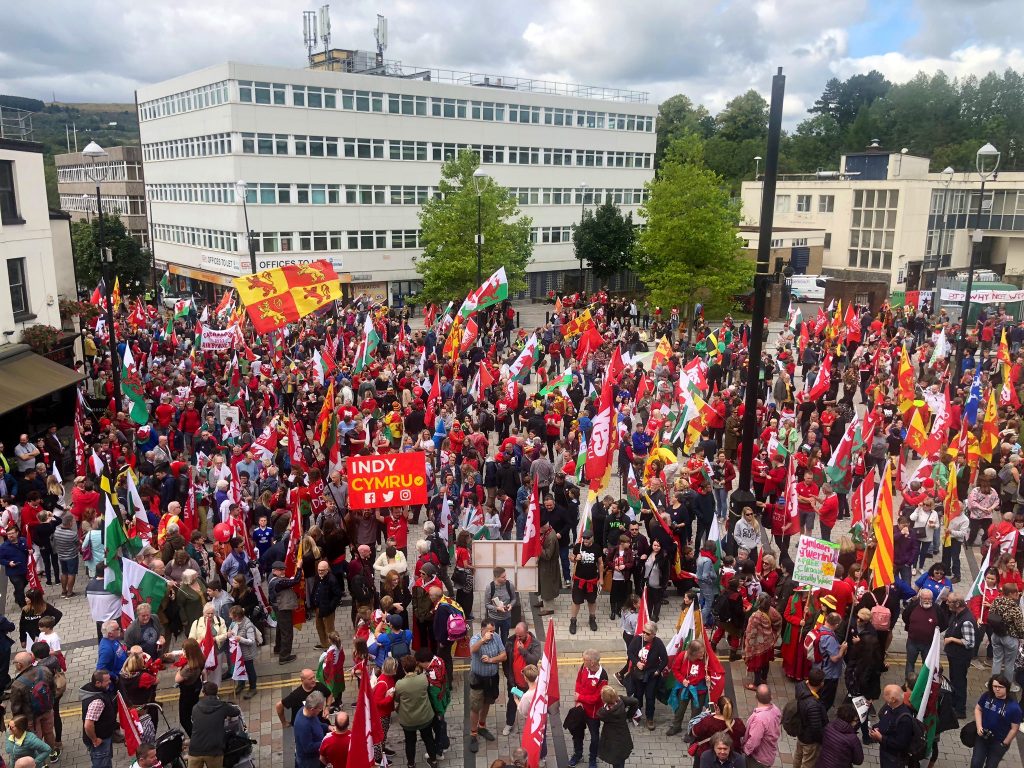The details of what an independent Wales would look like needs negotiating before a referendum or we could end up with a Brexit-style blank cheque, argues Mike Hedges
If Wales was an independent country it would be the 137th largest country sandwiched in size between Mongolia and Uruguay. We also know that the Gross Value Added (GVA) per capita – a measure of the value of goods and services produced in an economy – of many other countries (including some in Europe) is lower than that of Wales.
So, why having identified that Wales is neither too small nor too poor to be independent, do I oppose independence without the details being agreed first?
The primary reason is straightforward, and it rests on both Wales’s tax receipts and its GVA.
An independent Wales would, I believe, be poorer than we are now with a combination of higher taxes and poorer public services.
I did not stand for election to make my constituents poorer and I believe strongly in the redistributive funding method that exists in the United Kingdom.
If we have learnt lessons from the European referendum, they are, firstly, that the detail needs negotiating before the vote, secondly, those things that were going to be simple to negotiate were not, and thirdly, a trade deal is needed.
Terms and conditions
Amongst the things that will need negotiating, and this is by no means a comprehensive list, is:
What currency would an independent Wales have? What would be the central bank to act as lender of last resort and to set interest rates?
On 31 March 2017, there were 332,800 Civil Service employees in England, 43,220 in Scotland, 32,440 in Wales and 3,760 in Northern Ireland. From the above it can be seen that Wales has more civil service jobs than its population warrants and also has bodies such as the DVLA which cover the whole of the UK.
There are also services wholly provided in England which affect Wales and there will need to be negotiations regarding these jobs and services.
As above, the armed forces would have to be redistributed and relocated.
A customs union will need to be agreed. The rest of the UK is Wales’s largest export market and seamless trade will be essential.
Income tax – currently tax is paid in England and Wales based upon where someone lives, if Wales were independent it would need to be collected where it is earned (in the case of cross-border commuting).
Pensions and other benefits – How will the payments be made for people who have paid National Insurance contributions when living in both Wales and the rest of the UK?
Security – There are currently a number of bodies such as Border security that act on a UK basis and would either need to be jointly funded or split up.
National debt – This will need to be allocated on an agreed basis and Wales’ share needs negotiating.
VAT and duties – A method will be needed to align these in order to stop large scale cross border movement of goods.
Lessons from Brexit
Whilst I am sure that some will describe this as project fear and that solving all this and more would be simple, I am asking for an agreement on the above and other issues to exist before a referendum on Welsh Independence is called, rather than after the result, to avoid the problems of the type we have had with Brexit.
There are also advantages in being part of a larger country such as more moderate business cycles, greater ability to withstand problems in one sector (compare the UK and Iceland dealing with the global financial crisis), the ability to spread the cost of public goods and crucially be able to stand up to large multinational corporations.
Countries splitting up and joining together is not unusual. Some splits are amicable like the Czech Republic and Slovakia and others like in the Balkans involve conflict. Countries becoming a new nation by joining together include Italy and Germany in the 19th century, whilst in the 20th Century we have seen Germany unify again and Vietnam becoming unified.
There are independence movements in Scotland, Wales and Catalonia whilst in Northern Ireland there is a movement for unification with the South and there is a desire to unify Korea. Wales itself was created by joining, the kingdoms of Gwynedd, Brycheiniog, Powys, Deheubarth, Gwent and Morgannwg together.
The splitting and joining up of nation states has happened throughout the world but surely it is better to know what you are voting for rather than making a decision without the facts.
If we have learnt nothing else from the Brexit referendum, I hope we have learnt that.
All articles published on Click on Wales are subject to IWA’s disclaimer.





